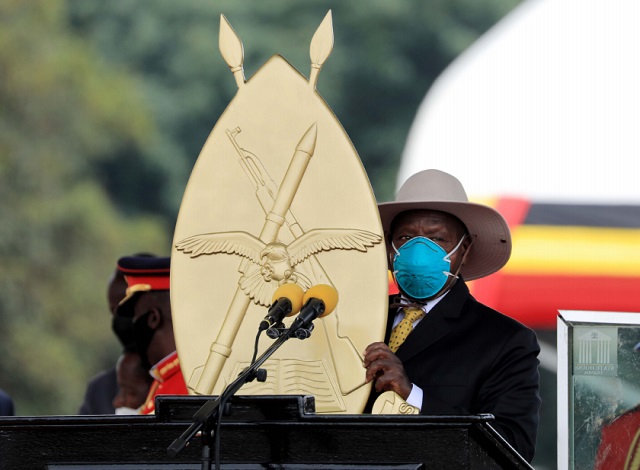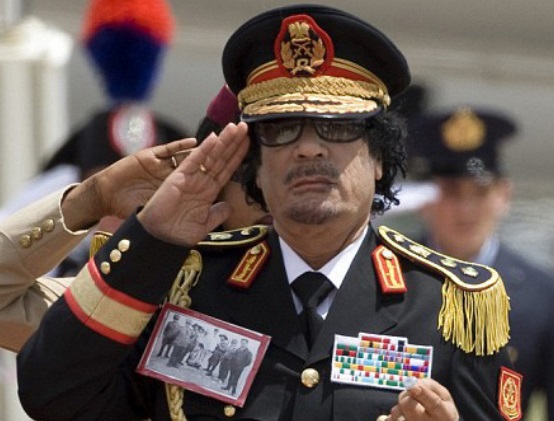
Bobi Wine worries Museveni?
Museveni’s latest tenure starts at a time when he and his ruling NRM party face an unusual challenger, Bobi Wine.
Politicians from Bobi Wine’s party, NUP – with their flashing red jackets and ties- are set to be the majority opposition party in parliament after trouncing many established NRM candidates in the January election; especially in the central region.
But Bobi Wine and his People Power army of youthful supporters appear worrisome for Museveni because they have found favour with Museveni’s erstwhile backers in the capitals of Europe and America. An infuriated Museveni has jailed hundreds of Bobi’s supporters but the knee-jerk action has been met with all-round condemnation from Amnesty International and Human Rights Watch and targeted sanctions from the U.S. government.
As he gave his address after swearing in, Museveni sent a rebuke to critics of his fading democratic credentials from Western capitals like America and France.
“We don’t need lectures,” he told them.
Museveni, to prove himself an architect of Uganda’s democracy, rattled off a list of elected representatives in Uganda, and the evolution Uganda’s parliamentary democracy has gone through over his almost half a century in power.

The tough-talking was a stretch from his first meeting with a US President, Ronald Reagan, at the White House in October 1987 when he stretched out his hand to greet the giant American leader saying “How are you your Excellency?” Museveni has bestrode the international scene with a mix of charm, deception and outright cunning to keep custodians of the international order at bay even when they have gone after some of his contemporaries.
At that brief meeting in the Oval Office, Reagan expressed his wariness to a young Museveni about the forays of Libyan Leader Muammar Gaddafi in the East African region. With just 21 months in power, Museveni retorted, “Mr. President, I started fighting Gaddafi before you started”.
Museveni gave Reagan a quick history of how Gaddafi sent 4,000 troops to back then Ugandan president Idi Amin in 1978 at the time a combined effort of Ugandan exiles and Tanzanian forces were fighting Amin. “I was one of the leaders on the other side,” he told a seemingly impressed Reagan who replied, “So I am preaching to the choir…”
Museveni stressed to Reagan that the advantage with Gaddafi was that he was one of the few leaders willing to help poor countries in the South to South trade unlike rich countries like Saudi Arabia which were inflexible on trade matters. It was a brief but illuminating encounter of the pragmatism that Museveni has employed in his 35-year stay in power amidst a fast changing geo-political landscape.
It is now ten years since the towering Gaddafi, Museveni’s comrade with whom they shared an on and off relationship, was felled by a Western military alliance after a popular uprising. His other comrades like Zimbabwe’s Robert Mugabe, and Chad’s Idris Deby have passed on while less influential ones like Equatorial Guinea’s Teodoro Nguema hang on.
Museveni has now seen seven American presidents and seven British prime ministers in office and they have been reciprocal when he has stretched out his hand for one deal or another. In the East African region, he has witnessed close to 20 heads of state take office and leave.
He used his speech as an opportunity to recast the events of Gaddafi’s demise.
“We were let down by Muammar Gaddafi who abandoned Tripoli without a fight,” he said. “Although, at that time, I did not have direct link with Gaddafi, I advised his envoy who came to see me, to turn Tripoli into a Stalingrad,” he added.
From the speech, it appears Museveni’s message to the Americans is not to try to take him on as they did with Gaddafi.
But already, the bloody election crackdown where an estimated 60 Ugandans were killed in November 2020 resulted into U.S. visa restrictions on unnamed Ugandan top officials. Those suspected to be targeted are officials in the police and military.
In 2019, the US placed sanctions on Gen. Kale Kayihua, former Inspector General of Police for alleged torture, human rights abuses and corruption.
The U.S. Department of the Treasury’s Office of Foreign Assets Control (OFAC) sanctioned Kayihura in conjunction with the Global Magnitsky Act and placed him under a visa ban and any properties of his in the U.S. under a blockade.
 The Independent Uganda: You get the Truth we Pay the Price
The Independent Uganda: You get the Truth we Pay the Price



